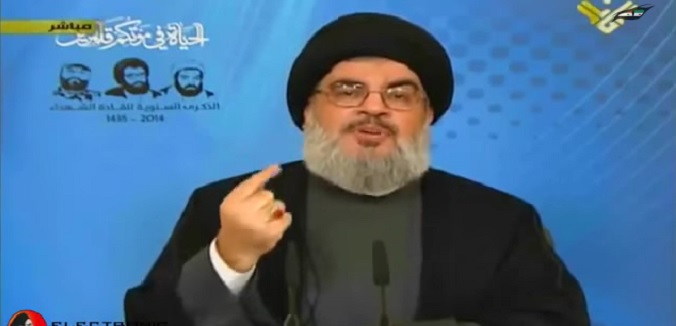The Jerusalem Post on Monday conveyed reports from Lebanese media outlets describing a series of lengthy meetings recently held between top Hezbollah and Hamas figures, including Hezbollah chief Hassan Nasrallah, the latest in what has become a steady stream of indicators that the Sunni terror group may be returning to the Iranian orbit after a period of estrangement due to the Syrian conflict:
Hezbollah head Hassan Nasrallah held several lengthy meetings with prominent Hamas officials last week, a Lebanese newspaper close to the organization reported on Saturday.
The meetings were meant to bring about a rapprochement between Shi’ite Hezbollah and its mother movement in Iran, on one hand, and Sunni Hamas on the other, Al-Akhbar reported. Several meetings have taken place.
Hamas efforts aimed at achieving reconciliation with Hezbollah and Iran emerged months ago, amid increasingly desperate efforts by the Palestinian group to cope with ongoing Egyptian campaigns designed to isolate its Gaza Strip stronghold. Some observers had expressed hopes that a recently announced unity pact between the rival Fatah and Hamas factions would check the latter’s drift toward Iran by providing it with diplomatic and financial alternatives.
That analysis has not proven particularly robust. Hamas does indeed seem to have been given a lifeline by the deal, halting what had been a year-long downward spiral, but meetings with Hezbollah and Iranian officials have if anything picked up pace. The end of May saw Iranian and Hamas leaders meeting publicly for the first time in three years.
Meanwhile Jerusalem Post national security reporter Yaakov Lappin on Tuesday quoted Israeli security sources revealing that Hamas has substantially bolstered its indigenous weapons production programs:
As Hamas in Gaza prepares to attempt a reunification with Fatah in the West Bank, the Islamist regime today forms one of the largest armed forces in the region, and has restructured itself into a military-like combat entity, complete with territorial divisions, a senior security source told The Jerusalem Post on Monday.
“Hamas doesn’t really need the Iranians for support anymore. It creates its own weapons, and is responsible for most of its own training,” the source said.
The group is widely thought to have medium-range rockets capable of putting roughly 70 percent of Israel’s civilians in range.
[Photo: AllEyesOnSyria / YouTube]




